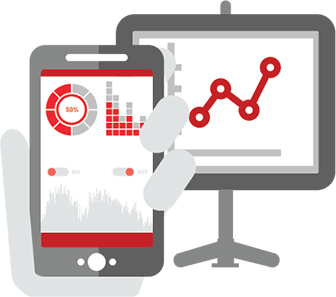

An idea can develop into a small business through organic development and word-of-mouth. Paid marketing, however, could be essential for expanding. There is no shortage of online advertising platforms available to e-commerce businesses. However, the choice may ultimately be made by the leaders in the sector: Which of the two - Facebook Ads and Google Ads is ideal for your business objectives?
Instagram and Facebook both have targeted social media advertisements called Facebook advertisements. Photos and videos that show in main feeds, Stories, or Reels on Facebook and Instagram can all be used as advertisements. As people surf Facebook, Facebook advertisements appear in their news feeds. The adverts seem quite like ordinary postings, but when marketers pay to appear in your feed, the phrase "Sponsored" is shown beneath the profile name. With Facebook advertising, marketers may locate their target audience based on user interests and activity, such as friends, sites they engage with, and other clicked advertisements, as well as demographics, such as age, gender, geography, family status, and household income. Facebook advertising also provides sophisticated targeting possibilities. Advertisers may run PPC ads and pay-per-impression (PPM) campaigns on Facebook.
With Google Ads, one pays when a visitor clicks on the company advertisement because they are targeted pay-per-click (PPC) ads. On Google searches, these advertisements are displayed. Paid search advertisements that appear as text-only on a search engine results page (SERP) are based on relevance to search terms and how much the advertiser paid for those keywords, are one of the ad kinds offered by Google advertisements.
Facebook ads are based on user interests and online behavior. They consider gender, age, location, income, and family status. Facebook Ads offers pay-per-impression (PPM) campaigns and Pay-per-click (PPC) campaigns where charges to the advertiser are 1000 per impression.
Facebook Ads vs. Google Ads – Similarities & Differences
Which of these two online platforms is better for one’s business? While there are many similarities, one must investigate the differences, advantages, and disadvantages each one brings to the table.
Reach
Both Facebook and Google are dominant players when it comes to Reach. Social Media for Facebook and Google Search Engines are similar. In terms of performance, the difference is that while Facebook has 3 billion users monthly, Google has around 3 billion searches every minute.
Targeting Option
While targeting the audience, both Facebook and Google offer demographic targeting. The difference is that Facebook relies on User data while Google depends on keywords.
Ad Formats
Both Facebook and Google offer multiple ad formats on their platforms. Facebook ads provide more flexibility and creativity as they are visually and text-driven, including videos, images, and carousels. Google search ad is the most popular, but they are text-driven.
When to use Facebook Ads and Google Ads?
It ultimately depends on your business type, product audience, industry, and business goals will determine which platform to choose for ads. Typically, Facebook Ads are good for increasing brand awareness with consumers while for making sales, Google Ads are more effective.
Conclusion
There is no clear answer to which ad platform is better- Facebook Ads or Google Ads? It all depends on the business goals. Both can complement each other in building brand awareness and driving sales. Finally, advertising costs on these platforms, Facebook Ads had lower PPC costs compared to Google Ads.
Facebook Ads, Google Ads, Facebook ads Vs Google ads, Paid ads marketing, Social Media Marketing